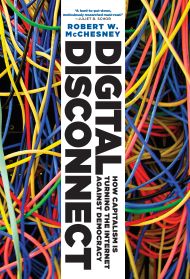A Paper Peace and Proxy War With Iran » CounterPunch: Tells the Facts, Names the Names
APRIL 22, 2015
Obama has Turned Up the Yemeni War-Dial
A Paper Peace and Proxy War With Iran
by SHAMUS COOKE
Obama's foreign policy is bound in a thousand knots, all threatening to unwind. At the same time that the U.S. is engaged in nuclear negotiations with Iran the two are fighting proxy wars against each other in Yemen and Syria.
Which begs the question: are the nuclear talks with Iran really that meaningful, if war is what's practiced?
Yes, Obama has overcome the objections of the Republicans and the Israeli lobby to pursue the negotiations with Iran. But bombs speak louder than treaties.
Now Obama has turned up the Yemeni war-dial by announcing the U.S. Navy is being parked off the coast of Yemen to tighten the naval blockade, itself an act of war. Interestingly, the media was told explicitly that the U.S. Navy's presence was directed against Iran to prevent weapon shipments from Iran to the Yemeni Houthis that now rule most of the country.
At the same time that Obama is preventing the Houthis from being armed, he is pouring military hardware into Saudi Arabia, who's using it to bomb Yemen to smithereens, killing hundreds of civilians in the process (the Saudis recently announced an end to their ineffective bombing campaign).
And for what? The stated goal of the Saudi-U.S. war on Yemen is to re-instate the hated Yemeni dictator, Abed Rabbo Mansour Hadi, who has no political legitimacy or socical support inside of Yemen. The Houthis have much broader support than Hadi ever had.
But attacking the Houthis is "necessary" — from the Saudi-U.S. perspective — because the Houthis receive backing from Iran, not because the Houthis are "terrorists." In fact, the Houthi's sworn enemy is al-Qaeda, which the Houthis have battled a thousand times more effectively than Obama's failed drone assassination program that killed hundreds of Yemeni civilians. But instead of helping the Houthis finish off al-Qaeda, Obama is helping Saudi Arabia attack the Houthis.
It's a terrible misnomer to label the current Yemeni conflict as a Saudi war. The Saudi's military is completely funded, trained, and directed by the U.S. military. The Saudi military doesn't sneeze unless it has U.S. permission. And the Saudis would be unable to wage this war without the key additional U.S. support, including refueling Saudi aircraft and directing the warplanes where to bomb.
In short, Obama could end this war with one public statement demanding Saudi Arabia cease and desist. War over.
But instead, the U.S.-Saudi war on Yemen was allowed to deepen into a humanitarian catastrophe. The U.S.-Saudi forces have essentially blockaded the entire country, preventing anything from coming and going in Yemen, meaning that fuel, food, and basic medical supplies are evaporating.
According to an Oxfam spokesperson: "…land, sea and air routes must be re-opened [in Yemen] to allow basic commodities like food, fuel and medical supplies to reach millions in desperate need."
Which brings us back to Iran. It's difficult to predict Obama's intentions in participating in "historic" nuclear talks with Iran, while the Yemen and Syria wars continue. Many have argued that Obama's Iran policy is part of a fundamental shift in his Middle East policy, which is an attempt to become less dependent on Israel and Saudi Arabia.
But ultimately — as the war in Yemen proves — the U.S. will continue to prioritize Saudi Arabia and Israel over Iran. The reason is simple: U.S. foreign policy depends on allies willing to do basically whatever the U.S. wants, a kind of alliance that is rare and takes years to foster and maintain. Unlike the stalwart Saudis and other Gulf monarchy dictatorships, no one expects the Iranians to become subservient to U.S. foreign policy.
Furthermore, the current "strong allies" of the U.S. all view Iran as an "existential" enemy, by virtue of historic, religious, and most importantly, economic rivalries. Iran is a regional power in a region of competing regional powers, most notably Saudi Arabia, Turkey, and Israel, and all want Iran destroyed so they can scavenge the carcass.
A key reason why Obama's allies agreed to the ongoing catastrophic proxy war in Syria was that it was viewed as a first step in crushing Iran. But the Syrian war blow back has sent millions of refugees across the Middle East and fostered the rise of the so-called Islamic State.
And while the Obama administration has hidden his hand in these regional wars, his administration remains the "decider" of Middle East foreign policy. The U.S. is directing its allies in the region after flooding the world with a historic amount of weapons.
According to William Hartung of the Center for International Policy: "… the Obama administration has approved more arms sales than any U.S. administration since World War II."
The Obama administration has been arming Iran's enemies while speaking soothing rhetoric to mislead the American public into thinking he's practicing peace. But when actions and words collide so viciously the truth eventually explodes the lie.
The regional wars in Yemen, Syria, and Iraq are pushing the entire region even closer to an even-broader regional war with incalculable consequences. Any peace in these circumstances will require a much deeper and concrete proposal than what is being discussed in the Iranian negotiations, the success of which remain in doubt.
Even if a nuclear deal is reached with Iran, the wheels have already been set in motion in the Middle East. There will be no sudden shifts in alliances when there are tens of billions of dollars in arms sales in place and countless diplomatic agreements cemented, and there will be no peace when decrepit regimes like Saudi Arabia and Israel are armed to the teeth and hungry for war.
============
Shamus Cooke is a social service worker, trade unionist, and writer for Workers Action (www.workerscompass.org). He can be reached atshamuscooke@gmail.com





No comments:
Post a Comment